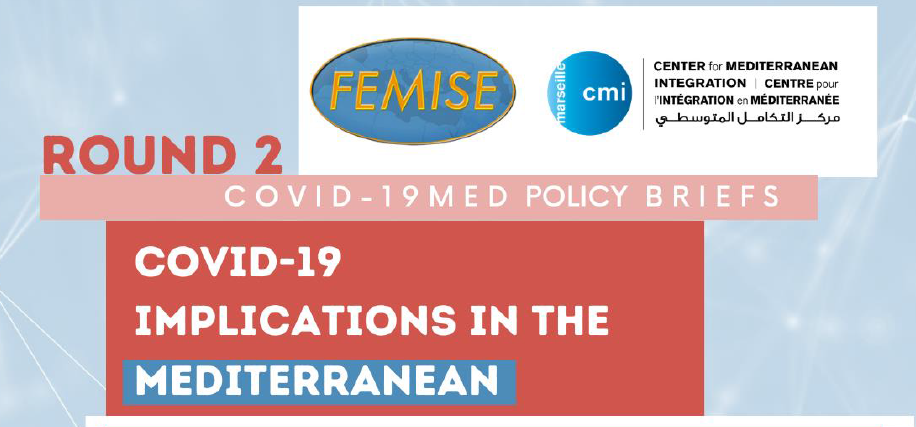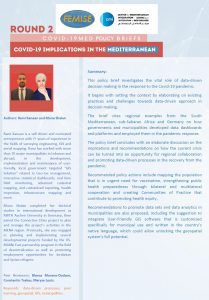
The coronavirus has proved to be a serious threat not only to people’s health but also to economies and societies of all countries, regardless of their level of development. This crisis presents a real test to the resilience of the Southern and Eastern Mediterranean countries, as it came at a time when they were challenged to keep their economies growing, facing increasing unemployment and scarce resources. The way out of the crisis will greatly depend on how countries in the region prioritise their actions, and on how they integrate and cooperate with each other in key sectors. Following the success of the first round of “COVID-19 MED BRIEFS” launched by the Center for Mediterranean Integration (CMI) and FEMISE, the two institutions decided to join forces again and launch a second round. This series of Policy Briefs is intended to pave the way for more in-depth thematic analyses and recommendations.
The eighteenth COVID-19 MED BRIEF, entitled “Promoting data-driven processes in the response and recovery from the pandemic through regional collaboration and peer learning” by Rami Kanaan and Muna Shalan is available here
 Summary : This policy brief investigates the vital role of data-driven decision making in the response to the Covid-19 pandemic.
Summary : This policy brief investigates the vital role of data-driven decision making in the response to the Covid-19 pandemic.
It begins with setting the context by elaborating on existing practices and challenges towards data-driven approach in decision making.
The brief cites regional examples from the South Mediterranean, sub-Saharan Africa and Germany on how governments and municipalities developed data dashboards and platforms and employed them in the pandemic response.
The policy brief concludes with an elaborate discussion on the implications and recommendations on how the current crisis can be turned into an opportunity for regional collaboration and promoting data-driven processes in the recovery from the pandemic.
Recommended policy actions include mapping the population that is in urgent need for vaccination, strengthening public health preparedness through bilateral and multilateral cooperation and creating Communities of Practice that contribute to promoting health equity.
Recommendations to promote data sets and data analytics in municipalities are also proposed, including the suggestion to integrate User-Friendly GIS software that is customized specifically for municipal use and written in the country’s native language, which could allow unlocking the geospatial system’s full potential.
This Policy Brief is produced as part of the series of Policy Briefs on « Responding to the Challenges of COVID-19 in the Mediterranean » that is undertaken in partnership between FEMISE and the Center for Mediterranean Integration (CMI).
The views expressed in this Brief are those of the authors and do not reflect the views of CMI or FEMISE. The contents have not been subjected to verification by CMI or FEMISE and their publication does not reflect ownership by CMI or FEMISE.


